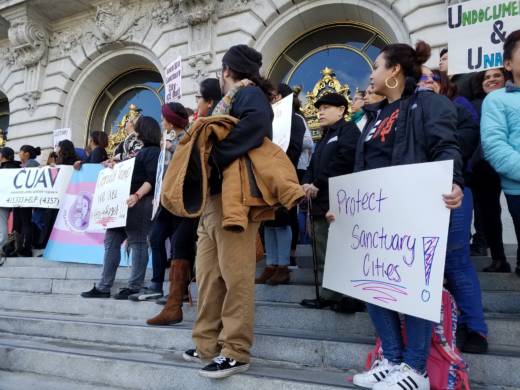Officials at the state, county and city level in California -- along with others around the country -- received letters from the U.S. Department of Justice Wednesday requesting documentation of policies about local law enforcement communication with federal immigration enforcement agencies.
The letters request "any orders, directives, instructions, or guidance to your law enforcement employees ... regarding whether and how these employees may, or may not, communicate with the Department of Justice, the Department of Homeland Security, and/or Immigration and Customs Enforcement, or their agents, whether directly or indirectly.” The federal government is not seeking information on the immigration status of individuals.
The Justice Department wrote to cities and counties -- and state-level offices in California, Illinois and Oregon -- that have general policies limiting law enforcement cooperation with federal immigration enforcement: so-called sanctuary jurisdictions. Officials in California received nine of the 23 letters, the largest proportion, followed by Illinois, which received three.
The correspondence seeks documents from public offices that applied for federal Edward Byrne Memorial Justice Assistance Grant funding in 2017. The Justice Department maintains that compliance with federal immigration law is a requirement for receiving the grants, which typically fund improvements for local criminal justice systems.
"Should the department determine your jurisdiction is out of compliance with [8 U.S.C. § 1373], the Department may, as detailed in your award documents, seek return of your FY 2016 grant funds, require additional conditions for receipt of any FY 2017 Byrne JAG funding for which you have applied, and/or deem you ineligible for FY 2017 Byrne JAG funds," the letters say.
